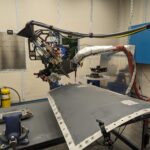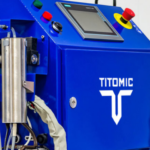MIT engineers have achieved a milestone in additive manufacturing by developing fully 3D printed solenoids, the essential components of many electronic devices. This achievement could be a boon for manufacturing processes, significantly reducing costs, minimizing waste, and improving accessibility to critical medical equipment like dialysis machines, especially in remote or resource-constrained areas.

Solenoids, electromagnets crucial for various electronics from household appliances to medical devices, traditionally require complex manufacturing techniques. MIT’s team modified a multi material 3D printer to directly print compact solenoids in one step, eliminating post-assembly defects. The feedstocks for the printer included dielectric, conductive, and soft magnetic materials.
Despite the initial investment in customized hardware, the approach offers cost-effective benefits compared to traditional fabrication techniques. The modified printer enables the production of smaller yet more efficient solenoids, demonstrating a threefold increase in magnetic field amplification compared to existing 3D printed devices.
While further research aims to enhance performance through material exploration and process refinement, this achievement marks a significant advancement in additive manufacturing, opening doors to diverse applications in electronics and beyond.
The potential applications extend beyond Earth, with implications for space exploration. The ability to manufacture replacement electronic parts using 3D printing technology could significantly reduce costs and time, offering a sustainable solution for long-term space missions.
You can read the research paper, titled “Three-dimensional, soft magnetic-cored solenoids via multi-material extrusion” over at this link.
Come and let us know your thoughts on our Facebook, X, and LinkedIn pages, and don’t forget to sign up for our weekly additive manufacturing newsletter to get all the latest stories delivered right to your inbox.










